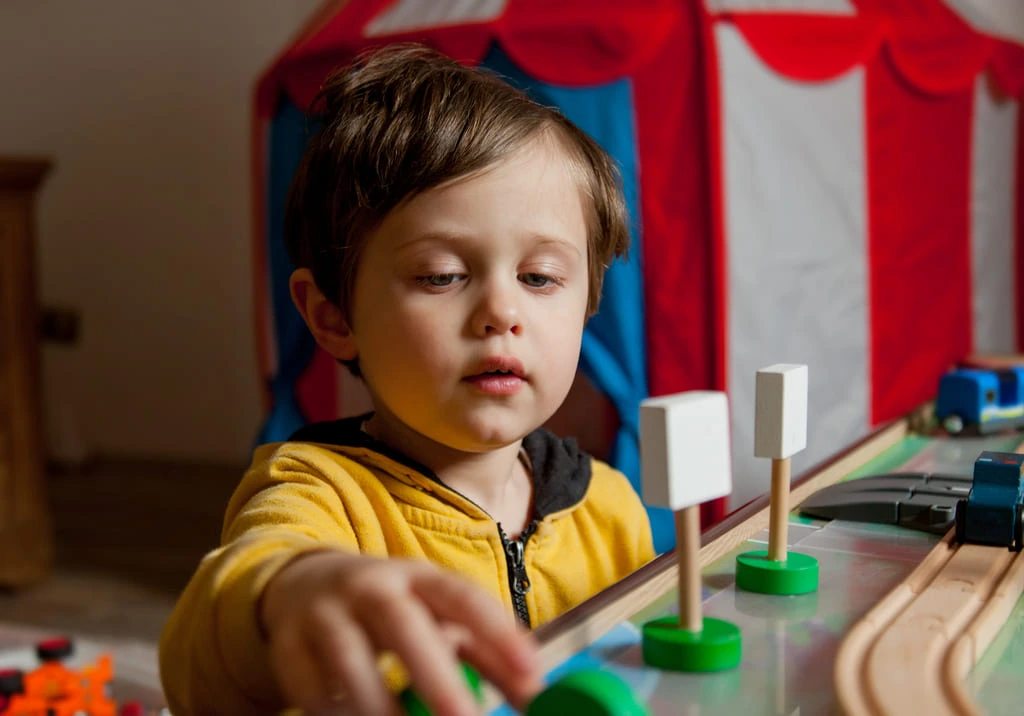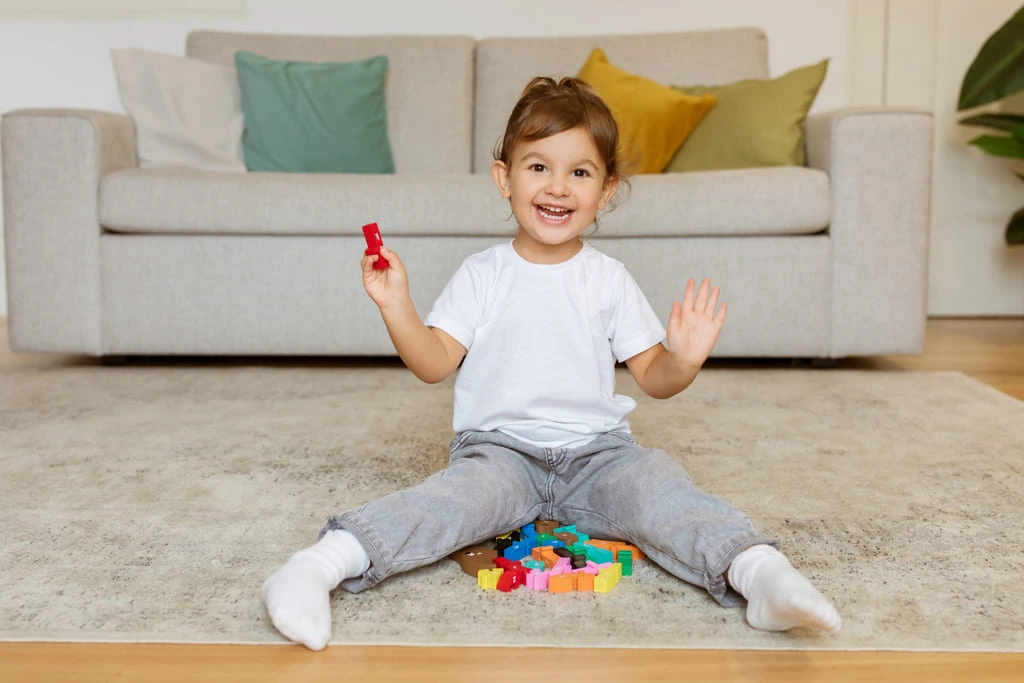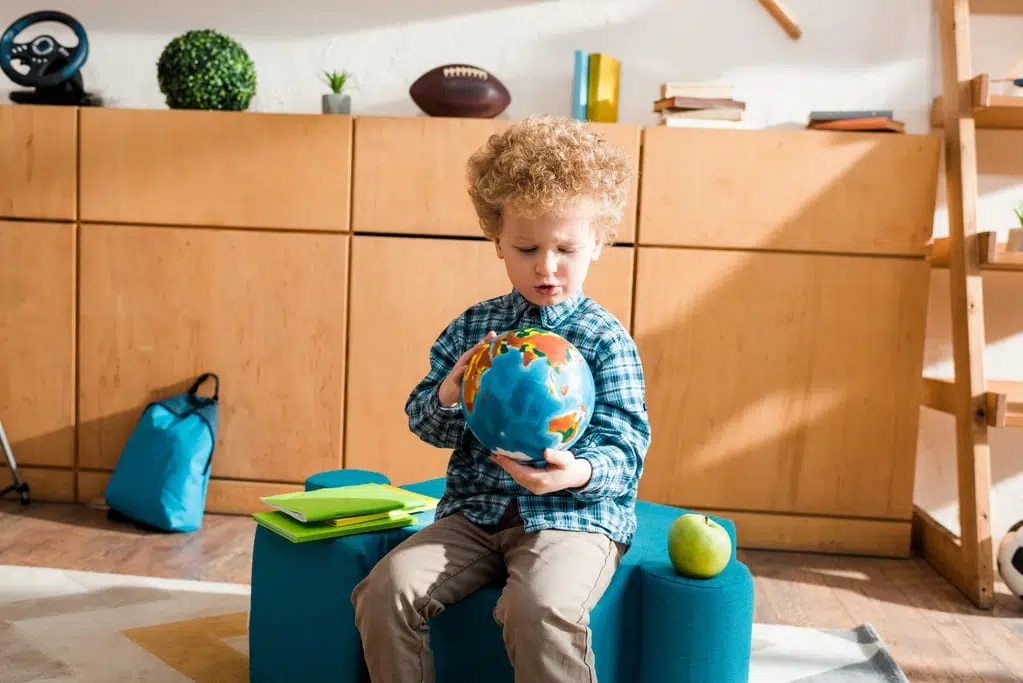The Impact of Global Developmental Delay on Children
Global developmental delay (GDD) can significantly impact children across various domains, including physical and cognitive skills, communication, and social and emotional development. The specific impact can vary depending on the underlying causes, support and early intervention. Here are some potential impacts:
- Understanding and retaining information - Children living with a global developmental delay may experience challenges learning and remembering information, impacting their academic progress.
- Problem-solving skills - Developmental delay may hinder a child's ability to think critically and solve problems, impeding their overall cognitive development.
- Interpreting social cues and awareness - Children with global developmental delays may have challenges understanding social cues and norms, making it challenging to interact appropriately in social situations.
- Responding appropriately to others - Due to difficulties in understanding social cues, children with developmental delays may have trouble reacting appropriately to others, leading to misunderstandings and social isolation.
- Developing self-care and personal independence - Children with a global developmental delay may need more time and assistance to learn fundamental self-care skills, including feeding, clothing, and personal hygiene. This can influence their independence and day-to-day functioning.
- Navigating their environment through movement (gross and fine motor skills) - Global developmental delay can affect a child's motor skills development, including both gross motor skills (e.g. walking, running) and fine motor skills (e.g. reaching objects, writing), making it challenging for them to explore and move through their environment.
- Playing and interacting with peers of the same age - Due to delays in social, cognitive, and motor development, children may find it challenging to participate in conventional play activities with their peers. This can have an impact on their general well-being and social interactions.
Early intervention, including therapies (such as physical therapy, speech and language therapy, occupational therapy), educational support, and supportive services, can significantly improve outcomes for children with global developmental delays so that they can lead fulfilling lives.

The Role of Play in Child Development
Play is vital in a child’s development, affecting multiple aspects of how they develop and feel. Play provides opportunities for children to engage in problem-solving, critical thinking, and creativity. Through imaginative play, children explore different roles, scenarios, and solutions, which enhances their cognitive abilities and fosters abstract thinking as part of their cognitive development.
Children learn social skills such as teamwork, empathy, and communication through social development. Whether playing with peers, siblings, or adults, children develop essential social competencies through interactions during play, including sharing, taking turns, and resolving conflicts.
The role of play allows children to express and regulate their emotions in a safe and supportive environment. Through play, children learn to manage their emotional skills through feelings such as joy, frustration, fear, and sadness. Pretend play, in particular, enables children to explore different emotions and roles, promoting emotional understanding and resilience. Meanwhile, active play, including running, jumping, climbing, and manipulating objects, promotes physical health and is part of a child’s physical development. It helps children develop gross motor skills, balance, coordination, and strength. Fine motor skills are also developed through activities like building with blocks, drawing, and playing with small toys, which support hand-eye coordination and dexterity.
Overall, play is fundamental to every aspect of child development, providing essential opportunities for learning, growth, and exploration.
Importance of Play in Cognitive and Motor Skills
Play fosters the development of cognitive and motor skills, particularly in children facing developmental delays. For children with significant delays or developmental disabilities, play is a vital tool for early intervention, providing them with opportunities to engage in activities promoting learning and skill acquisition. Through play, children can explore their environment, experiment with different movements and actions, and practice essential developmental milestones such as crawling, walking, and object manipulation. Play activities tailored to the child’s needs and abilities can help bridge the gap between their current skill level and expected developmental milestones, laying a foundation for further progress.
Early intervention strategies incorporating play-based approaches effectively support children with developmental delays, helping them reach their full potential and develop essential cognitive and motor skills crucial for success in school and beyond. As children with developmental delays transition into school age, the importance of play remains significant in their ongoing development. Play continues to be a fundamental mechanism for children to refine their cognitive abilities, problem-solving skills, and motor coordination. Play-based learning activities can be integrated into the curriculum in a school setting to support children with developmental delays in various academic and social domains. These activities facilitate skill development and foster creativity, imagination, and social interaction, promoting holistic growth and well-being.
Cognitive Benefits: Imagination, Problem-Solving, and Creativity
Children with a global developmental delay often demonstrate rich imaginations and creativity. They may engage in imaginative play, storytelling, and artistic expression. These creative outlets provide self-expression, emotional processing, and social interaction opportunities. For example, imaginative play can help them explore different roles, scenarios, and perspectives, fostering empathy and social skills. Many children with a global developmental delay display impressive problem-solving abilities. Young children may find innovative solutions to challenges they encounter in daily life, such as navigating social situations, completing tasks, or communicating their needs effectively. While some children with a global developmental delay may have challenges with attention and focus, others develop a keen ability to concentrate on tasks of interest. This focused attention can facilitate learning, skill acquisition, and mastery in specific areas of interest or talent.
Engaging in imaginative play, problem-solving activities, and creative pursuits can positively impact behaviour in children with a global developmental delay. These activities provide constructive outlets for energy and emotion, reducing the likelihood of challenging behaviours. Additionally, when children experience success in problem-solving or creative endeavours, it boosts their confidence and self-esteem, contributing to more positive interactions with others. Environmental factors, including the support and encouragement of parents and family members, play a crucial role in nurturing the cognitive benefits of children with a global developmental delay. Parents can create imaginative play opportunities, provide creative expression resources, and offer guidance in problem-solving activities.
How Play Fosters Inclusion
Play creates a platform for children to connect, learn, and grow together, promoting a culture of inclusion where every child feels valued, respected, and accepted for who they are. Play is inherently educational and provides rich opportunities for learning about diversity, tolerance, and inclusion. By engaging in play activities that reflect diverse perspectives and experiences, children develop a greater understanding of the world around them and learn to value and respect differences. Inclusive play enables environments where parents, health professionals, and communities can help nurture a generation of empathetic, compassionate, and inclusive individuals.
Here are several ways in which play promotes inclusion:
A level playing field where all children can participate regardless of their differences.
Opportunities for children to engage in shared experiences, build relationships, and develop empathy towards others.
Communication, cooperation, and teamwork are essential social skills for building inclusive communities.
Breaking down barriers by focusing on common interests and shared goals rather than differences.
Opportunities for children to succeed, take risks, and build confidence in their abilities.
Incorporating Play in Daily Routines
Incorporating play into daily routines offers numerous benefits for children’s development and well-being, such as physical health, cognitive development, language development, and many others. Play provides a natural outlet for children to express their emotions, relieve stress, and cope with challenges. Engaging in playful activities regularly teaches children to regulate their emotions, build resilience, and develop a positive outlook on life, promoting emotional well-being and mental health.
It reinforces family bonds and fosters positive parent-child relationships. By engaging in playful activities together, families can create lasting memories, enhance communication, and build connection and trust, promoting a sense of belonging and security within the family unit. The play addresses multiple aspects of children’s physical, cognitive, social, emotional, and language development. By integrating play into daily routines, parents and caregivers can support children’s holistic development and lay the foundation for lifelong learning, growth, and success.
Benefits of Integrating Play and Inclusive Techniques for GDD
Integrating play and inclusive techniques offers a multitude of benefits, particularly for individuals facing challenges such as language delay, delays in development, fine motor delays, or living with autism spectrum disorder. By merging the power of play with inclusive practices, children with a significant delay are offered a platform to thrive socially, emotionally, and cognitively. This approach fosters a sense of belonging and acceptance and encourages skill-building, communication, and positive relationships.
For more information on the interconnectedness of global developmental delay and autism spectrum, you can read here.
Academic Progress and Cognitive Advancements
Through play, children with a global developmental delay can engage in experiential learning, allowing them to explore academic concepts in a hands-on and interactive manner tailored to their developmental needs. Inclusive techniques ensure that all children, regardless of their abilities, have the opportunity to participate and succeed, fostering a supportive and equitable learning environment. Play-based activities promote cognitive advancements by stimulating problem-solving skills, creativity, and critical thinking while enhancing memory retention and information processing.
Moreover, inclusive play encourages social interaction, communication, and peer collaboration, strengthening cognitive abilities through shared experiences and diverse perspectives. By integrating play and inclusive techniques, children with a global developmental delay can achieve academic milestones, develop essential cognitive skills, and thrive in their educational journey, paving the way for lifelong learning and success.
Enhanced Socialisation Skills
By incorporating play into interventions and activities tailored to the specific needs of children with a global developmental delay, caregivers and educators create inclusive environments where all children can actively engage and interact. Play provides opportunities for children to practice social skills such as communication, cooperation, sharing, and empathy in a supportive and non-judgmental setting, fostering positive relationships and social connections. Inclusive play environments encourage peer interaction, collaboration, and mutual support, promoting a sense of belonging and acceptance among children with global developmental delay and their peers. Through play, children will learn to navigate social situations, develop friendships, and build confidence in their social abilities, ultimately enhancing their socialisation skills and overall quality of life.
Positive Impact on Emotional Well-Being
By experiencing success and enjoyment in activities tailored to their abilities, children with GDD can build confidence, self-esteem, and resilience, enhancing their emotional well-being. They engage in activities that promote self-expression, social interaction, and stress relief, contributing to a positive emotional outlook. Integrating play and inclusive techniques for children supports their developmental needs and nurtures their emotional well-being, paving the way for a fulfilling and enriching childhood.

GDD Support with Leaf Complex Care
As a dedicated provider for people with complex care needs, Leaf Complex Care offers comprehensive support for individuals with a global developmental delay. We have an in-house therapists team comprising Positive Behaviour Support (PBS) specialists, speech and language therapists, and occupational therapists, supporting the diverse needs of individuals with a global developmental delay. These therapists collaborate closely to develop personalised care plans tailored to each individual’s specific challenges and strengths. Through evidence-based practices and therapeutic techniques, they work to enhance cognitive, communication, motor, and social skills, empowering individuals to maximise their potential and participate more fully in daily life activities.
We enable individuals with global developmental delay to receive comprehensive and coordinated care that addresses their unique needs and fosters their overall well-being. By offering a wide range of services and prioritising individualised care, Leaf Complex Care helps individuals and families navigate the challenges of managing a global developmental delay with compassion, expertise, and dedication.
Contact us today and visit our Bristol, Slough, Birmingham and Somerset offices for additional information.


















